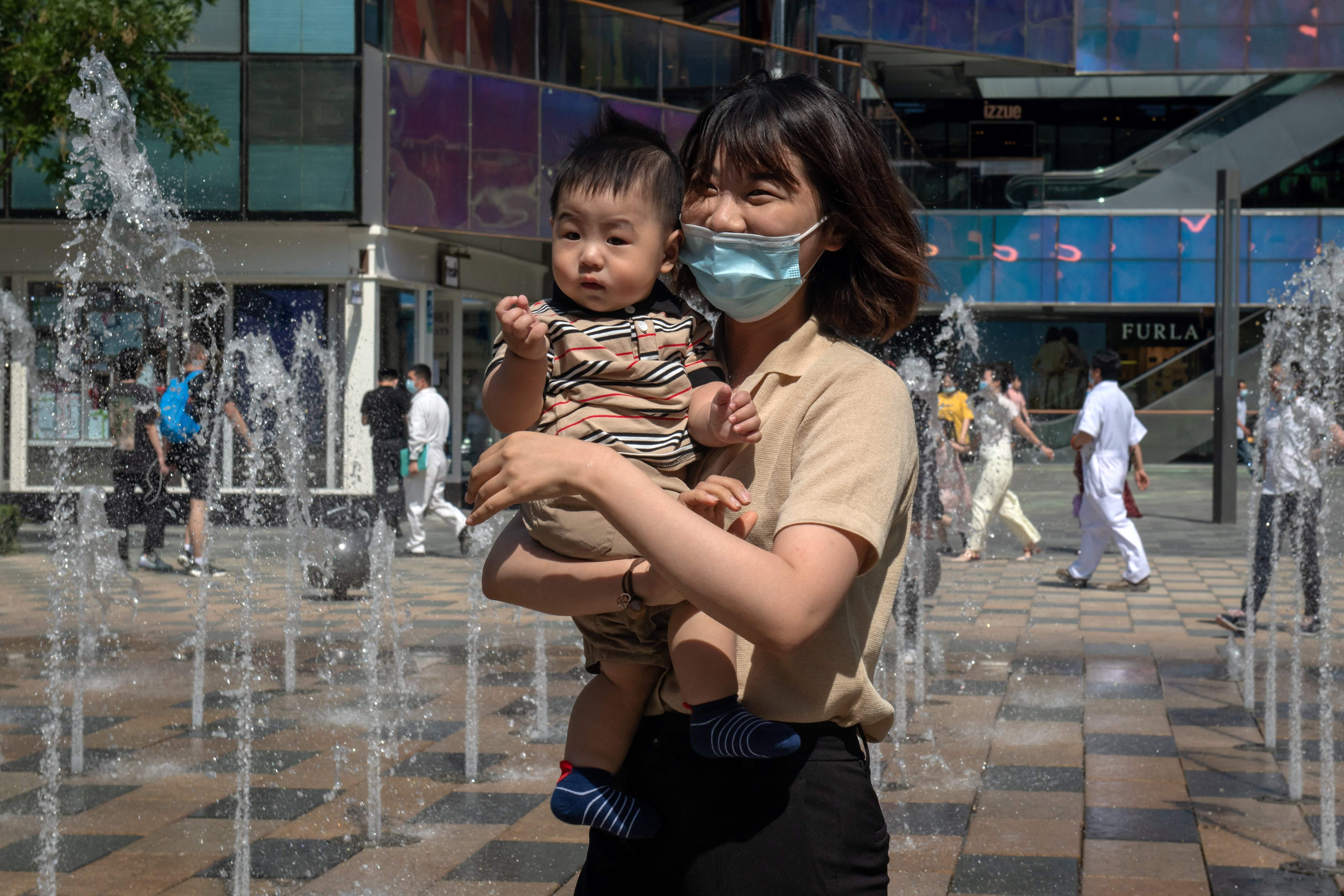What will China’s new three-child policy mean for the world’s second-largest economy?
Will the new family policy in China actually result in an increase in the birth rate, or is it too little and too late to change China’s demographic course? Ben Chu investigates


The Communist Party leadership in Beijing has taken another step towards abolishing its legal controls over the reproductive rights of the Chinese population.
On Monday, state media announced that the Politiburo will be permitting families to have up to three children.
This follows the loosening of the infamous “one-child policy” in 2016, allowing couples to have two children.
That shift was prompted by growing concerns about the economic implications of the rapid ageing of Chinese society thanks to the collapse in the birth rate to well below the population replacement rate of 2.1 children per woman.
And the latest liberalisation has apparently been prompted by the results of the latest national census last month, which showed the national demographic picture to be more ominous than previously thought.
Births in China last year fell to just 12 million, down by nearly a fifth from 2019. And the Chinese population now looks set to peak, and then start a steep decline, before the end of the decade.
But while the new three-child policy is a symbolic moment for Chinese society, will it actually result in an increase in the birth rate?
Or is it, as some argue, too little and too late to change China’s demographic course? And what are the implications for the world’s second-largest economy?
The reaction on Chinese social media to the announcement of the new rule change was one of bemusement rather than celebration.
Respondents indicated that they would not be increasing the size of their own families, with most pointing to the high costs involved in raising children in China.
An online poll by the state news agency asked if people would consider having three children, and just 5 per cent said they would.
To some extent this is probably a matter of familiarity and expectations. Chinese couples who have become used to the financial outlay of raising one child are understandably daunted by the prospect of those costs doubling or tripling, whereas their counterparts in other countries, where larger families are the norm, would find it less off-putting.
Yet it’s a question of an absence of state support too. Chinese families receive little in the way of subsidised childcare, or paid maternity or paternity leave, relative to parents in western countries, which also helps explain the unenthusiastic reaction.
The Beijing government did signal it would be increasing this kind of support alongside the headline rule change, although it provided no details. James Liang of Peking University argues that childcare and housing subsidies for parents could give the new family size policy more purchase.
However, the history of the one-child policy, first imposed in 1979, also casts a long and negative financial shadow. Many of those born in the last four decades into one-child families are facing the prospect of looking after their ageing parents with no siblings to share the burden. Many say that’s another reason why they would not want to add to their financial stress by having more than one child themselves.
The danger for Beijing is that there is now too much inertia built into the system for the government to shift it.
It’s notable that the 2016 liberalisation in China, as widely predicted at the time, failed to raise the birth rate.
“With small family sizes now well ingrained into the fabric of Chinese society, there is little that policymakers can do to turn back the clock,” concludes Julian Evans-Pritchard of Capital Economics.
So what are the economic implications?
It’s certainly possible to paint a very bleak outlook for the Chinese economy as the country’s population declines. The working-age workforce already peaked in 2012 at around 937 million. And the number of pensioners relative to the working-age population – the old-age dependency ratio – is set to rise sharply in the coming decades, from 20 per cent to 50 per cent.
The reasonable assumption is that this will represent a drain on the incomes of the working population as they will have to bear the financial burden of providing pensions and meeting medical costs for a large elderly cohort.
With the average per capita income in China still well below that in developed countries, the great fear among the Beijing leadership is that the country will “grow old before it grows rich”.
Yet an ageing population need not spell economic doom for the Chinese economy. If China were to continue growing its national productivity – the amount of output per worker – the costs of ageing could still be bearable.
Tianlei Huang of the Peterson Institute for International Economics argues that more can be done to increase female participation in the workforce and to boost education levels, particularly in rural areas.
And China could also welcome younger immigrants from other less developed Asian countries to help shoulder the burden of an ageing population.
The one-child policy introduced by Deng Xiaoping in 1979 reduced the birth rate at a time when it was set to decline anyway, as the country set off along the path of industrialisation and modernisation. It’s a well-established pattern that women have fewer children as family incomes rise. Indeed, the birth rate in China had already been plummeting since the middle of the 1960s.
The one-child policy will go down in history as an epic historical and economic mistake. Yet even for China, demography does not have to decide economic destiny.
Join our commenting forum
Join thought-provoking conversations, follow other Independent readers and see their replies
Comments